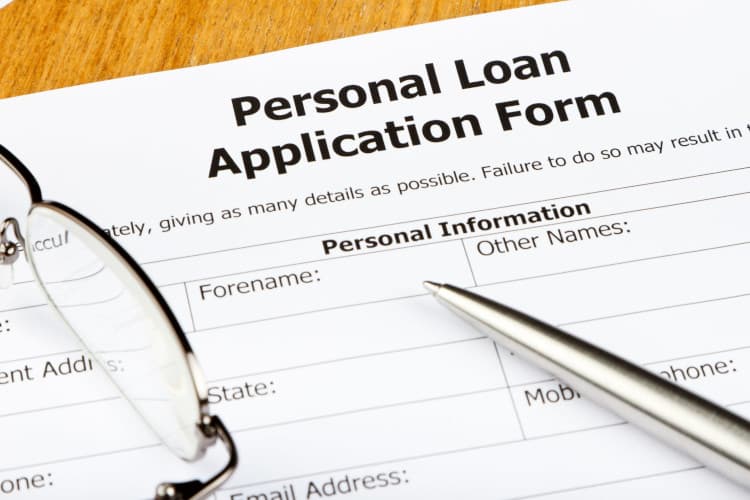A personal loan is a flexible loan that enables you to receive a lump sum that you can spend towards whatever purpose you deem fit. Personal loans can be used for a diverse range of needs, such as debt consolidation or refinancing, big events like weddings, hospital and medical expenses, property purchases, and basically any other big expense you would otherwise be unable to pay for from your own pocket.
While a personal loan can be a promising financial solution, there are limitations. Unlike home or auto loans, personal loans are non-collateral loans which means they aren’t secured against a property of value. Because of this, lenders will be more careful when it comes to selecting borrowers who are eligible for these loans.
What Constitutes Personal Loan Eligibility?

Personal loan eligibility pertains to your qualities as a borrower and your capacity to make loan payments consistently and reliably over the course of the loan term. Lenders look for individuals that they can trust to make payments so they don’t incur losses.
To achieve that, there are a number of standard requirements that borrowers need to fulfill in order to be considered favorable and eligible.
Sufficient Monthly Income
Lenders expect you to be able to make your loan payments on time and in full when they’re due. So to be certain of your financial capacity to make reliable payments, it’s vital that you generate sufficient monthly income to support your new loan and your other financial obligations.
It’s not enough that you make just enough to cover your loan payments and your daily needs. Lenders want to see that you’ll have money to spare because finances aren’t always that easy to manage. So borrowers who have some ‘financial leg room’ at the end of each month are often more likely to have their personal loan applications approved.
Existing Debt
Do you have an existing loan or significant credit card debt with any other financial institution? This may have an impact on your eligibility. It’s not enough that lenders look into the amount of money you make. They’ll also make sure to assess whether a portion of that goes to any other loans that you might have taken out. The more debt you have, the lower your eligibility becomes.
But more than the amount of existing debt that you have, your lenders will also want to know your behavior and patterns when it comes to paying for them. If you pay on time and still have enough money from your income to cover your personal expenses and another loan, then they might not find it to be too much of a problem.
Viable Collateral
Although it’s not necessary that you list any property as collateral, it does help make you more eligible for a loan. Properties like land, your home, your car, or even industrial equipment you own for your business can be used as loan collateral.
Lenders tend to favor people who offer collateral because it gives them leverage in the event that the borrower fails to make payments. If that happens, borrowers reserve the right to repossess your collateral so they don’t incur losses if you default.
Other Sources of Income

Maybe you have a small online business in operation, or perhaps you own shares that you earn dividends from every so often. Whatever the case, it always helps to outline any other sources of income that you might have.
Lenders will generally feel more confident lending individuals who can prove their financial security and stability, and any other source of income aside from your employment should help demonstrate that.
Work History
You’re probably making enough monthly to make timely, consistent loan payments. But that doesn’t automatically make you eligible. For instance, individuals with fragmented employment history – such as those who jump from job to job over a short period of time – might seem unreliable at a glance.
Inconsistencies in your work history may impact your eligibility for personal loans because it puts the future of your employment in question. If you lose your job at any point during the loan term, then it’s possible that you might not be able to make any loan repayments and thus default.
Lenders are keen on granting loans to individuals who have a reliable, stable work history. The requirements change from lender to lender, but it helps to have at least one straight year of employment history with the same, current employer when you apply.
Reasonable Age
Lenders will not be open to approving personal loans for individuals who are minors. Typically, the ideal age range would be between the ages of 25 and 60 since individuals in this bracket may have more work experience, and thus a greater capacity to make payments.
In the same way, lenders may also put a cap on the eligible age as an individual reaches age over 60. Financial institutions granting loans want to make sure that their loans are paid off, but if the borrower exceeds the maximum age at any time during the proposed loan term, then they might be seen as ineligible.
For instance, if a borrower will be 65 by the end of a 5 year loan contract, then they might not be able to make timely, reliable payments because of the possibility of retirement and its impact on their financial capacity.
Credit Rating
While some lenders won’t actually look too deeply into your credit rating, financial institutions like banks treat your credit score as gospel. Essentially, your credit score will give your lenders an idea as to how reliable you have been as a borrower throughout your financial history.
Your credit rating is affected by your loan repayment patterns. If you’re consistently late on paying your monthly amortization, if you’ve previously defaulted, or if you’ve had properties repossessed in the past, then you can expect to have a below than average credit score. Credit card behavior and your reliability when it comes to paying for credit card bills can also have a significant impact on your rating.
How to Improve Your Personal Loan Eligibility

There are countless stories of people experiencing the frustration of having their application turned down time and time again. Although it can be disheartening, there are things you can do to improve your eligibility and thus receive approval for your personal loan request.
Lower the Loan Amount
If at all possible, consider lowering your requested amount. With a smaller loan amount, you directly decrease the monthly payments you’d have to make. In effect, the overall expense on your end would be more flexible considering your monthly income.
Taking out a smaller loan also helps you repair your credit. If you have poor credit and struggle to borrow larger amounts, then you can take out a small loan and do good on your repayments. This will slowly increase your credit rating and make you more eligible for bigger personal loans in the future.
Involve Your Household
It’s one thing to show a lender your own personal work history and income, and another thing to give them a full picture of your household finances. Involving other people under the same roof can empower your application and make you seem like a more reliable borrower.
Loans that involve a co-borrower are called guarantor loans, and they combine your financial profile with your co-borrower’s. This works in favor of individuals who might not have the work history or the credit score to qualify for personal loans on their own.
When choosing a co-borrower, someone with good credit standing, a clean employment history, and a pristine financial status should be ideal. You can choose to involve your spouse or your parents, and their purpose would be to share the liability with you.
In essence, the payments will still come from your own pocket. But the involvement of a co-borrower ensures your lender that in case you’re unable to make payments, your co-borrower would be the next in line to take on the financial obligation.
Keep in mind that your co-borrower will also incur negative effects on their credit score should payments be late or in the event of default. Discussing the potential risks with your co-borrower before undertaking a guarantor loan should clear out the smoke and make everyone involved aware of the possible downsides to this type of loan.
Decrease Your Debt-to-Income Ratio
If there’s an opportunity for you to pay off previous loans or credit card bills, then doing so may improve your chances of getting approved for personal loans. This will reduce your loan-to-income ratio and thus improve your eligibility for other personal loans.
In some cases, individuals who want to improve their credit score may even opt for small personal loans to consolidate debt. This process may reduce the interest rates and reduce the monthly payments you need to make.
Complete Your Documents

There have been instances of people being turned down for personal loans despite being capable simply because they were unable to substantiate their credentials. If you’re applying for a personal loan, make sure you come equipped with all the documents you need to prove your capacity to make payments.
When it comes to documentation, anything and everything can help. Even something as simple as the proof of consistent, timely phone bill payments can help make a lender more confident in your financial capacity.
Paid bills, pay stubs, tax returns, certificate of employment, and bank statements are just some of the papers you might want to have in handy. Paint a clear picture for your lender – sometimes they just want more proof.
Shop Around for Lenders
Financial institutions like banks can be particularly strict when it comes to requirements and eligibility. But there are more lenders out there than just banks. Private institutions that offer personal loans can provide competitive interest rates and flexible loan terms that make them more attractive and practical. Plus, most private lenders will be less particular when it comes to your credit score which gives borrowers with a low rating bigger chances of approval.
Our database brings you an extensive list of different lenders in Canada to help you discover opportunities for your personal loan needs. Shop around and find a suitable institution to provide you the financial assistance you need, and receive prompt approval and funds when you need them.

